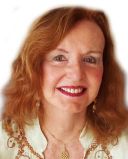Depression
Creative Writing and the Psyche: 2 Silences
The Threat of Making Art: One writer's journey, part 1.
Posted August 19, 2020
Note to Reader: As a licensed psychologist, I strictly adhere to the ethics of confidentiality; therefore, I do not use/make reference to any patient/client information in the pieces I write. The only data I use to explore these psychological issues is my own.
In my last post, I discussed the fact that creative writing may well be the most threatening of the arts because, rather than symbols, notes, paint, or movement, the tools of other arts, for the creative writer, words are the medium, and since language is common to all of us (in a particular geographical area), it offers little or no anonymity. The creative writer is therefore more vulnerable to judgment or censure.
*
One of my regrets as a developing writer was that I didn’t get to hear other writers’ stories. As a psychologist, I was aware of how critical these were to both reducing the sense of isolation that pervaded my writing life and to deepening my understanding of my own creative process. Sadly, though, we didn’t speak of these things. Perhaps it was competition that silenced us, or more likely our wish to appear invulnerable in the eyes of our mentors and each other.
Our teachers didn’t share their stories either; the one exception is Allen Ginsberg when he substituted for Galway Kinnell in our craft class at NYU. Ginsberg spoke openly of his depression over his inability to write an original poem—one of his own invention rather than one that duplicated those of his workshop peers at Columbia. He became so depressed over his lack of originality that he resolved to stop reaching for it. Free of demand and expectation, he abandoned himself to whatever impulses pulled him in a poem. He experimented and played. Remarkably, that journey ultimately gave him “Howl.” He was finally free!
Ginsberg concluded that the only way to write good poems was to write bad ones. I felt liberated. I too was always chasing the "good poem," but unlike Ginsberg, "good" for me meant writing like my workshop peers. Clearly that precluded meandering off the beaten track into unchartered territories that might distract me. But accepting failure as a necessary part of my growth and encouraged by Ginsberg’s celebration of his differentness (mine always terrified me!) gave me permission to let go of the reins and play in a poem. Given my orthodox personality, however, this became a long and difficult process, but I kept Ginsberg as my guide throughout and remain enormously grateful to him for his honesty and generosity. In this same spirit of friendship, I offer here the flesh and bones of my own quest for originality and invention.
It is my belief that writers at some point in their lives were forbidden speech, and it is that prohibition coupled with an unsatisfied longing to communicate that compels us to write. In short, we write to make contact. It becomes our aesthetic project, then, to find the place where we can release that silenced voice and free it to speak in its most natural (yet artful) dialect—strange that I would describe it this way since anyone familiar with me would say I’m known for speaking up.
As a matter of fact, while I blame my parents for silencing me, I also credit them for encouraging me to speak. As a child I had much to say at dinner or to the neighbors who spoke disrespectfully to me, I thought—telling me it was time to do my homework or wash up for supper (neighbors in our town of Edgewater Park at the northeastern tip of the Bronx, New York, had as many children as lived on the block). And despite the fact that my parents still laugh about the time I told my uncle he couldn’t tell me what to do because he wasn’t “even my father” and the time I told “that old crab Ella” that Mom didn’t like her, still I attribute my inability to speak to my staunch Irish Catholic home.
In our five-room beachside converted bungalow, it was understood that certain things were never spoken of "outside of our four walls." We could fight and rail among ourselves, but we were forbidden to speak of family outside our home. And that commandment worked to silence us for years. To this day, none of us speaks openly to "outsiders" about family without some measure of guilt.
Then there were the topics we never spoke of with anyone: sex, anger, jealousy, greed—we didn’t have those feelings in our house. Pride was a particular problem since it was Satan’s sin. Clearly it was Lucifer’s pride that caused him to be cast out and damned for eternity. So we had to be vigilant not only to hide these feelings, but to make sure we didn’t have them in the first place. Such terrible mortal sins, they brought with them the threats of Hell and God turning away. The thought of that was more painful even than our parents’ disapproval and justice.
This brings me to censorship—from within. What we generally think of as censorship involves being told by the outside world what we can and cannot do. But more profound is our own internalization of these dictates as we grow. Censorship starts with childhood hiding, the conscious decision to keep the truth from another, but then it matures into a highly sophisticated unconscious hiding that even poetry itself and psychology can collude with. We start out hiding the ‘bad’ parts of ourselves; we end up not knowing they ever existed. So censorship for the Cusacks became much more than an inability to speak openly about what went on in the deeper pockets of our minds and bodies. For us, censorship included hiding from ourselves. In fact, censorship included rejecting whole parts of the self.
This is how simple humanity became something to apologize for. Because the self was flawed, all impulses were suspect. The self that remained after the cleansing of forgetting had to be monitored—each thought, feeling, or gesture meticulously charted. The cost of occasional slips when the self, somehow left unguarded, reared its sordid head was desolation and terror. Thinking and curiosity were dangerous. The barometer of good was the saints; they were models of what God wanted (and had a right to expect given His willingness to die for us)—suffering and martyrdom. Its meaning inverted, happiness became synonymous with pain and service, with heaven not earth. This earthly life was mere preparation for the real life that came after death.
It would follow then that I’ve spent most of my life censoring myself. My need not to know the workings of my own mind—my terror of unsolicited or unshackled thought—left me isolated. Constantly confused myself, I never believed anyone would understand what I was saying—not because they weren’t clever enough but because I was (am) inarticulate. The words swam around, got tossed, reeled back in every color, and I made the mental move from “I don’t have the right to speak” to “I can’t speak.”
Given all this, how then did the writer in me "find" my voice—one that is uniquely my own and not formed by some dictate of what should be said? Where did I find the tools and the courage to release my desperate hold on my imagination—allowing it free reign to discover its own quirkiness? How did I learn to let it speak? How did I come to accept what I’d disapproved of in myself? And how do I continue to leave myself open to the discovery that we so long for in a good poem? How do I, in the words of Seamus Heaney, "speak the unspeakable"? Like honesty, speech is hard-won, and though the final product, be it candor or a poem, may appear graceful, even effortless, the process may be painful.




